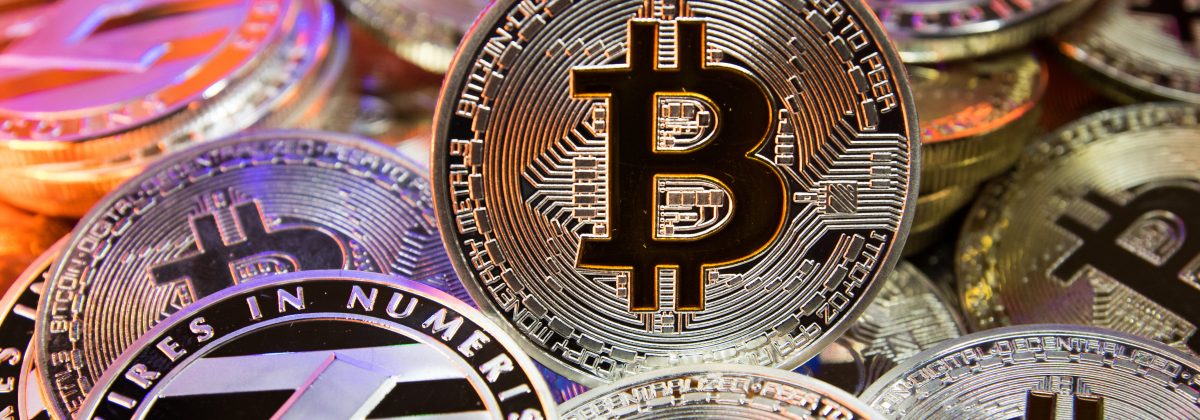5 of the best performing cryptocurrencies in 2019

The cryptocurrency market had a good run in 2019. After a long slump in 2018, the market rose considerably, due to overall global economic instability and uncertainty. As fiat currency assets became unpredictable in their returns, due to geo-political developments and low interest rates, investors sought safe haven assets like Bitcoin (BTC). The CoinGecko Yearly Report for 2019 states that the overall crypto market cap increased 44.1% in 2019, closing the year at $180 billion. Bitcoin trading alone saw a rise of 600% in 2019.
On the whole, the market has gained steadily in terms of trade volume, market cap, technological advancements and investor psychology. More and more regulatory authorities are showing an interest in creating policy frameworks in this space, looking at the positive effects of blockchain technology in various areas.
Let’s look at the 5 biggest cryptocurrency performers in 2019 that helped the market rise.
1. Bitcoin (BTC)
Bitcoin had a phenomenal year in 2019. Although the coin didn’t attain its 2017 highs, it was 2019’s best performing financial asset. BTC gained 95% through 2019 (282% in H1 2019), despite volatility, and stayed in the range of $3,500 to $13,500. In comparison, gold gained only 19%, while the S&P 500 gained 29%.
There are many reasons for this growth, apart from an overall global economic slump. Bitcoin saw advances in its open-source ecosystem in 2019. The Lightning Network has increased its transaction speed and helped in the creation of wallets like Wasabi and Samurai, which have in-built user-friendly features and improved privacy.
The announcement of Facebook’s Libra blockchain did help a bit too, although the failure to launch the coin resulted in a bearish momentum in Q3 2019. Now, with the upcoming Bitcoin halving event, scheduled for May 2020, BTC prices are expected to rally in the future. As of February 13, 2020, BTC remains the top cryptocurrency, with a market cap of $186 billion and a price of $10,213.
2. Binance Coin (BNB)
The token that powers trading activities and various fee-related payments within the Binance exchange ecosystem, gained over 450% from January to May 2019. It delivered a 122% gain overall in 2019, reaching an all-time high price of $39.57 in June 2019.
The launch of Binance DEX, which hosted several successful IEOs, helped the evolution of BNB as an ecosystem. This was also supported by the robust economic model deployed around the BNB coin, which allowed traders to pay low exchange fees. The price of the BNB coin, however, dwindled in Q3 2019. In 2020, the price of BNB has more than doubled from January 1, 2020, when it was trading at $13.80, until February 13, 2020, when it is trading at $26.
The recent price hike can be attributed to the news of the listing of the Binance Coin perpetual contract on its crypto derivatives trading platform, Binance Futures on February 10, 2020. This news led to a spike of 10% in its value.
3. ChainLink (LINK)
One of the successful cryptocurrencies in recent months, ChainLink saw a meteoric 1416% rise in the first half of 2019. It is a decentralised Oracle service, which connects smart contracts with real time data. Participants in the network are rewarded for providing smart contracts with links to external data feeds.
ChainLink’s success can be attributed to various high-profile partnerships scored in 2019, with companies like Google, Binance, Aelf and Oracle. On June 29, 2019, when Coinbase Pro announced its decision to list the token on its exchange, LINK gained 1186% within hours of the news. The coin gained an overall 459% in 2019. Over the next few years, this project could prove to be a huge success story, due to the way it bridges the gap between real-world applications and blockchain-based smart contracts.
4. Tezos (XTZ)
XTZ started 2019 at $0.47, but by the end of the Q1 2019, it had risen to $1.06. By May 2019, the coin was trading at $1.88. As of February 13, 2020, it is the tenth largest cryptocurrency, trading at a price of $3.16. Over the course of 2019, the XTZ/USD pair gained 190% in trading value.
Like Ethereum, Tezos is a multi-purpose platform that supports dApps and smart contracts. It is equipped with on-chain governance and self-correcting protocol to tackle network modifications. The use of the delegated proof-of-stake (DPoS) consensus model makes it faster and provides more power to token holders.
Delegating XTZ tokens to Coinbase can give token holders 5% crypto dividends pay-out as of February 2020. Many new tokenisation projects and Security Token Offerings (STOs) are being built on top of it. Until February 2020, the coin has seen 150% gain YTD. This one is a project to watch out for.
5. Huobi Token (OKB)
Exchange tokens like BNB and OKB had a great 2019. The native token of the Huobi cryptocurrency exchange, OKB can be used to purchase premium plans for voting decisions, low exchange fees, crypto rewards from seasonal buybacks and more. In 2019, the token generated 285% gain. Huobi has recently joined the governance council of Klaytn, the South Korean Internet giant’s Kakao Group’s blockchain network.
OKB is one of the biggest rivals of the BNB coin and has gained 28% in the second week of February 2020. It started 2020 at a price of $2.75 and as of February 13, 2020, it was trading at $4.67.
Overall, the crypto market has shown huge growth over the past year. Although volatile, Bitcoin is showing significant signs of future adoption and development. More institutional investors are getting interested in the industry, which is a positive sign. While new coins are emerging, the relevance of established ones like Ether, Ripple and Bitcoin Cash, are far from over. On February 13, 2020, blockchain accelerator MouseBelt announced 11 new founding members in its Blockchain Education Alliance, which includes Ripple, Stellar, TRON and Wanchain. XRP is also showing plenty of promise in cross-border payment solutions, as inflation risks hit global payment networks.
However, cryptocurrencies can be volatile instruments, and it is always a good idea to keep an eye on market developments before trading.
Reference Links
- https://www.newsbtc.com/2020/01/03/exchange-related-tokens-dominate-crypto-roi-last-year/
- https://cointelegraph.com/news/best-performing-cryptos-of-2019-not-named-bitcoin
- https://beincrypto.com/cryptocurrency-market-trading-volume-went-nearly-600-2019-coingecko-report/
- https://www.ccn.com/15000-gains-the-5-best-and-worst-crypto-performers-of-2019/




